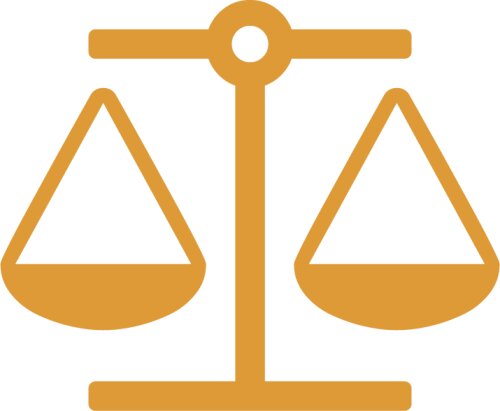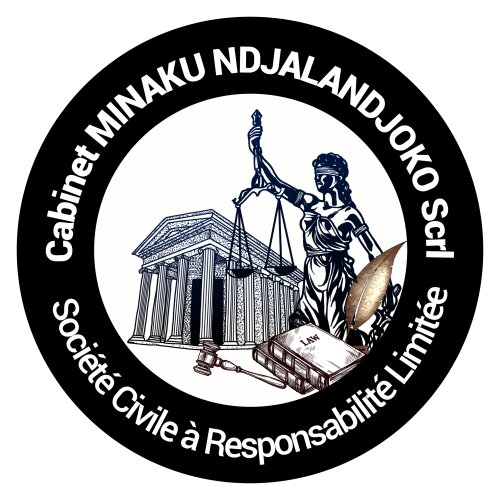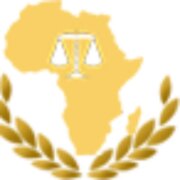Best Admiralty & Maritime Lawyers in DR Congo
Share your needs with us, get contacted by law firms.
Free. Takes 2 min.
Or refine your search by selecting a city:
List of the best lawyers in DR Congo
About Admiralty & Maritime Law in DR Congo
Admiralty and Maritime Law in the Democratic Republic of the Congo (DR Congo) governs legal issues related to nautical matters including navigation, shipping, waters, commerce, and naval operations. Given DR Congo's strategic location and access to the Atlantic Ocean, maritime activities are a significant component of the nation's economic and commercial framework. Key ports such as the Port of Matadi and Port of Boma on the Congo River enable trade and transport, necessitating a comprehensive understanding of maritime laws which regulate carriage contracts, marine environmental concerns, and ship registration under DR Congo's jurisdiction.
Why You May Need a Lawyer
There are several situations where seeking legal advice in Admiralty and Maritime Law might be necessary:
- Disputes arising from international shipping and cargo contracts.
- Environmental compliance and marine conservation issues.
- Personal injury claims or accidents that occur on navigable waters.
- Arrest of ships or maritime assets due to outstanding debts.
- Negotiation and drafting of charter parties and bills of lading.
- Assistance with maritime insurance claims and coverage issues.
- Vessel registration and compliance with local maritime regulations.
Local Laws Overview
Key aspects of DR Congo's maritime laws include:
- Vessel Registration: All ships operating commercially within territorial waters must be registered with the Congolese maritime authorities.
- Marine Pollution Control: DR Congo has implemented several regulations to prevent and control marine pollution, aligning with international environmental conventions.
- Admiralty Jurisdiction: The Congolese courts have jurisdiction over maritime disputes, including ship mortgages, maritime liens, and collision claims.
- Safety Regulations: Shipping operations must adhere to safety standards and guidelines to ensure the well-being of crews and passengers.
- Labor Laws at Sea: There are specific regulations regarding seafarers' rights, employment conditions, and compensation.
Frequently Asked Questions
What is Admiralty and Maritime Law?
Admiralty and Maritime Law is a specialized area of law that deals with issues related to maritime activities, including navigation, shipping, and offshore work.
How does DR Congo handle ship registration?
Ships in DR Congo must be registered with the Congolese maritime authorities to legally operate in its territorial waters. This involves complying with local regulatory requirements and fee payment.
What are the common risks associated with maritime business in DR Congo?
Common risks include maritime piracy, regulatory compliance, environmental liabilities, and operational disputes.
Can I claim compensation for injuries sustained at sea?
Yes, under Congolese maritime law, individuals injured while at sea can seek claims for compensation when proper provisions and procedures are followed.
What should I do if my ship is arrested?
Contact a maritime lawyer immediately to understand your rights and to initiate the process of seeking the vessel's release from arrest.
Are international maritime laws applicable in DR Congo?
Yes, DR Congo adheres to several international conventions and treaties that influence its local maritime regulations.
What are the penalties for marine pollution in DR Congo?
Penalties for marine pollution can include fines, imprisonment, and seizure of the polluting vessel or equipment.
How do I resolve a cargo dispute with a shipping company?
It is best to seek legal advice, as experienced maritime lawyers can facilitate negotiation or litigation as necessary to resolve disputes.
What kind of shipping contracts are common here?
Common shipping contracts include charter parties, bills of lading, and cargo insurance contracts.
Do I need special documentation for maritime employment?
Yes, seafarers need specific documentation and certifications that demonstrate compliance with international and local labor regulations.
Additional Resources
For those seeking more information or assistance, the following resources may be helpful:
- Ministry of Transport and Communications: Oversees maritime activities and safety regulations in DR Congo.
- Port Authorities: Managing bodies of major ports such as Matadi and Boma providing information on port services and shipping requirements.
- Legal Associations: Congolese societies and organizations that offer networking and support for maritime professionals.
- International Maritime Organization (IMO): Provides guidelines and standards applicable to global maritime operations that influence DR Congo’s policies.
Next Steps
If you require legal assistance with an Admiralty and Maritime issue in DR Congo:
- Gather all relevant documents and information related to your case.
- Identify and consult with an experienced maritime lawyer to understand your legal position.
- Cooperate with legal authorities and follow recommended steps to address your legal needs effectively.
- Remain informed about local and international maritime laws to guide future maritime activities.
Lawzana helps you find the best lawyers and law firms in DR Congo through a curated and pre-screened list of qualified legal professionals. Our platform offers rankings and detailed profiles of attorneys and law firms, allowing you to compare based on practice areas, including Admiralty & Maritime, experience, and client feedback.
Each profile includes a description of the firm's areas of practice, client reviews, team members and partners, year of establishment, spoken languages, office locations, contact information, social media presence, and any published articles or resources. Most firms on our platform speak English and are experienced in both local and international legal matters.
Get a quote from top-rated law firms in DR Congo — quickly, securely, and without unnecessary hassle.
Disclaimer:
The information provided on this page is for general informational purposes only and does not constitute legal advice. While we strive to ensure the accuracy and relevance of the content, legal information may change over time, and interpretations of the law can vary. You should always consult with a qualified legal professional for advice specific to your situation.
We disclaim all liability for actions taken or not taken based on the content of this page. If you believe any information is incorrect or outdated, please contact us, and we will review and update it where appropriate.
Browse admiralty & maritime law firms by city in DR Congo
Refine your search by selecting a city.
















